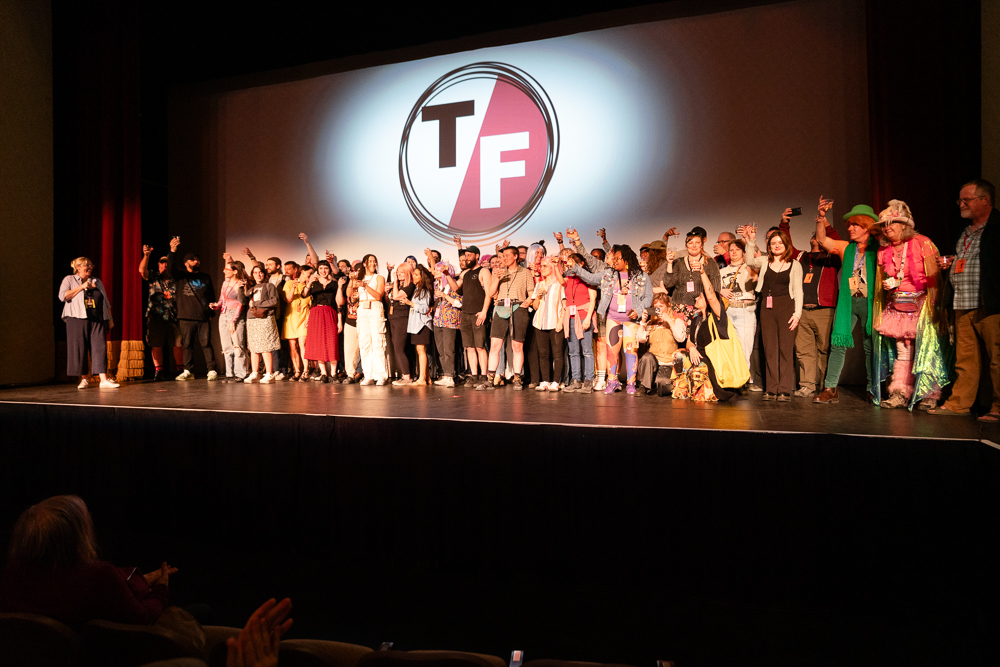True/False is a rare gem. As a critic based in Chicago—whether it’s Cannes, Karlovy Vary, Sundance, SXSW, NYFF, or TIFF—I’m always venturing out of the Midwest to a festival in another region or another country. But no matter who I’ve asked: programmers, critics, publicists, or filmmakers—True/False has always been described as a kind of Eden for nonfiction film. Knowing that it takes place on the University of Missouri campus in Columbia, Missouri always filled me with pride as a Midwesterner, even though I’ve never attended. For those reasons, I’ve always hoped to venture to True/False, a seven-hour drive from Chicago or a short flight to St. Louis with a smaller two-hour jaunt to the festival.
Considering only one week separated the beginning of True/False and the end of the Berlin International Film Festival, I can’t help but compare the two. There are of course the superficial differences: Berlin is a major city; the theaters are resplendent gigantic movie houses; the attendees are more generally from across the globe. True/False has a cozy, downhome feel; the theaters are practical (though the 1200-seat Missouri Theatre is a beautiful movie house in its own right) and oh so comfy; the crowds are a potent mix of older attendees and young college students. But their biggest difference this year may lie in their respective response to Gaza: While Berlinale mostly tried to sidestep the issue, until a series of post-festival gaffes and misjudged statements called into question their tepid support for the outspoken embattled filmmakers like the Israeli-Palestinian collective behind “No Other Land,” True/False, on other hand, made its position known early on: It released a statement supporting a Cease Fire.
Because of this festival’s distinct approach, unlike the Berlinale’s tenuous reliance on films about displacement—a theme that felt out of step with its public messaging—True/False’s similar interest in works about displacement felt like an organic extension of its political ethos, especially as many filmmakers, from the director of “There Was, There Was Not” to the creative behind “Flying Lessons,” offered pro-Palestinian statements before their respective films premiered. The same could be said about the imperative pro-Palestinian march that occurred at the festival too.
That isn’t to say the festival was a somber affair; an event this vital and vibrant, where many volunteers dress in elaborate costumes and where live performances from musical artists precede every screening, could never be a subdued party.
Before diving into the films, however, I must give a quick shoutout to Hitt Records. Attached to the tasty Uprise Bakery and nestled around the Ragtag Cinema’s two intimate theaters—you can grab a couple records, go get a quick bite to eat, and then sit down for a movie. So basically, for me, a perfect day. The selection at Hitt Records, a space with vinyl stacked in every corner, from hard-to-find bluegrass to classic rock, was so good I had to stop myself from murdering my bank account (I did end up picking up 1970s repressings of the Kinks’ “Face to Face” and “Something Else By the Kinks,” along with a copy of “Roulette,” a Bruce Springsteen bootleg).
My festival began with three straight showings at Big Ragtag, a venue whose seating is a mix of stadium style and cushy couches: The major highlight of the three films was Armenian filmmaker Emily Mkrtichian’s “There Was, There Was Not,” which kicked off the theme of displacement that was so prevalent throughout the programming. From there my festival experience took some adventurous turns: Because a good component of the titles originated out of Sundance—scorchers like “Girls State,” “Daughters,” “Ibelin,” “Look Into My Eyes,” “Seeking Mavis Beacon,” and “Union”—I was able to catch world premieres such as Rachel Elizabeth Seed’s sobering “A Photographic Memory,” Jennifer Wickham, Brenda Michell and Michael Toledano’s defiant Indigenous narrative “Yintah,” and Elizabeth Nichols’ portrait of No Wave artist Philly Abe, “Flying Lessons.”
That kind of depth and quality in the programming is a constant to True/False I’ve always heard praised by others. Its low-key tone was also a seeming fairy tale spoken by many that proved to be real. The industry apparatus choking most festivals was negligible amid an unnaturally warm iteration, where temperatures reached near 80 degrees, inviting the town’s wide sidewalks to be packed with jubilant, colorful crowds. The weather also summoned a host of drunken college students to nights of reverie, with one jumping into my festival shuttle armed with a phone in search of God knows what (his friend did not help to quell the situation. Instead, he asked if this was the van for the basketball team). If I sound like a hand wringing old, I’m not. I actually found the rendezvous quite charming (I hope he found his way to wherever he was going).
I don’t want to put too fine a point on the Midwest charm of True/False. If only because such aggrandizing can either slip into the kind of simplistic patronizing or superficial observations of a folksy paradise that is glibly thrown at the region by coastal visitors. But there is a unique vibe to Columbia, Missouri—where Western plainness and Southern warmth, the potent concoction that is the calling card of the Midwest—is deeply felt in the rambunctious farflung parties soaked in neon beats and its friendly conversationalist audiences (I have never had as many pleasurable chats with festival goers as I’ve had here). It’s why I felt a greater wistfulness leaving this festival more than any other; because I was departing the familiar. It felt great, for once, traveling through my own neck of the woods.












